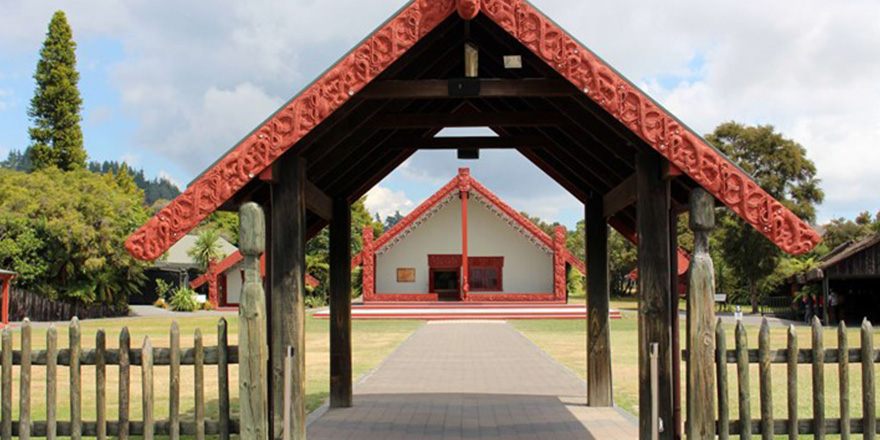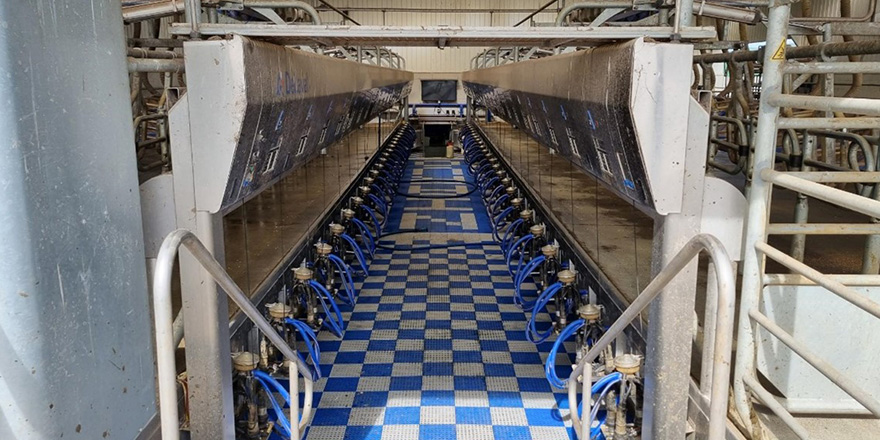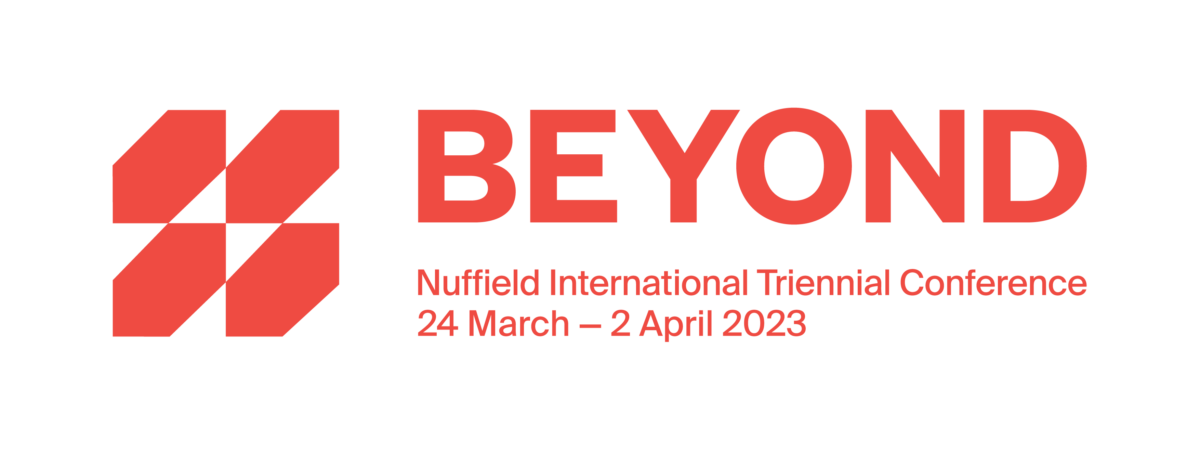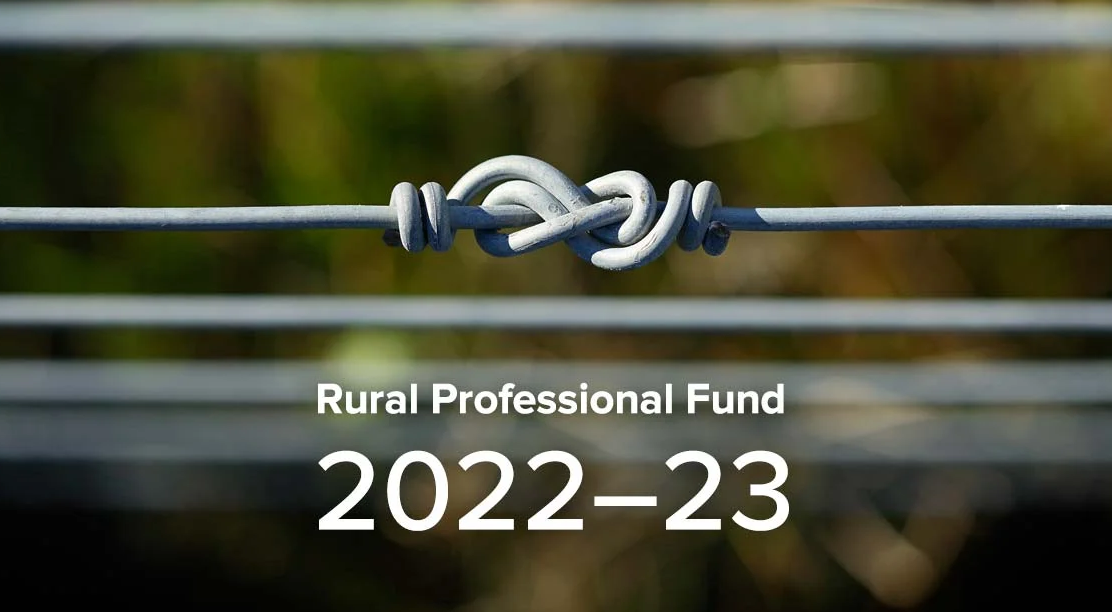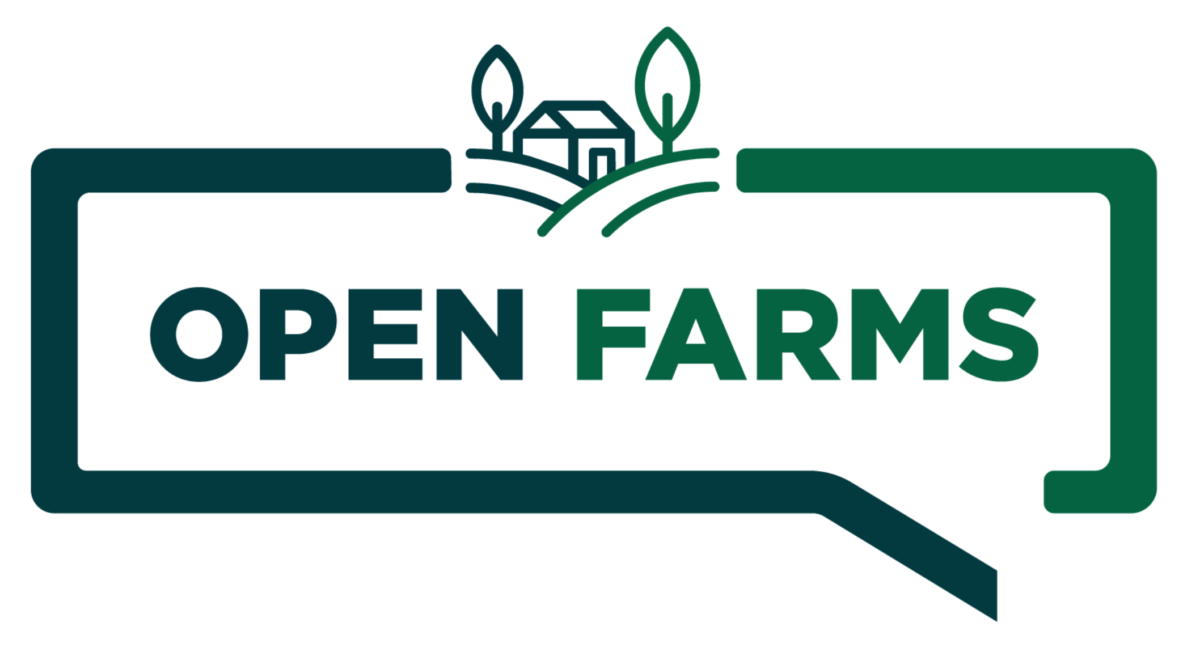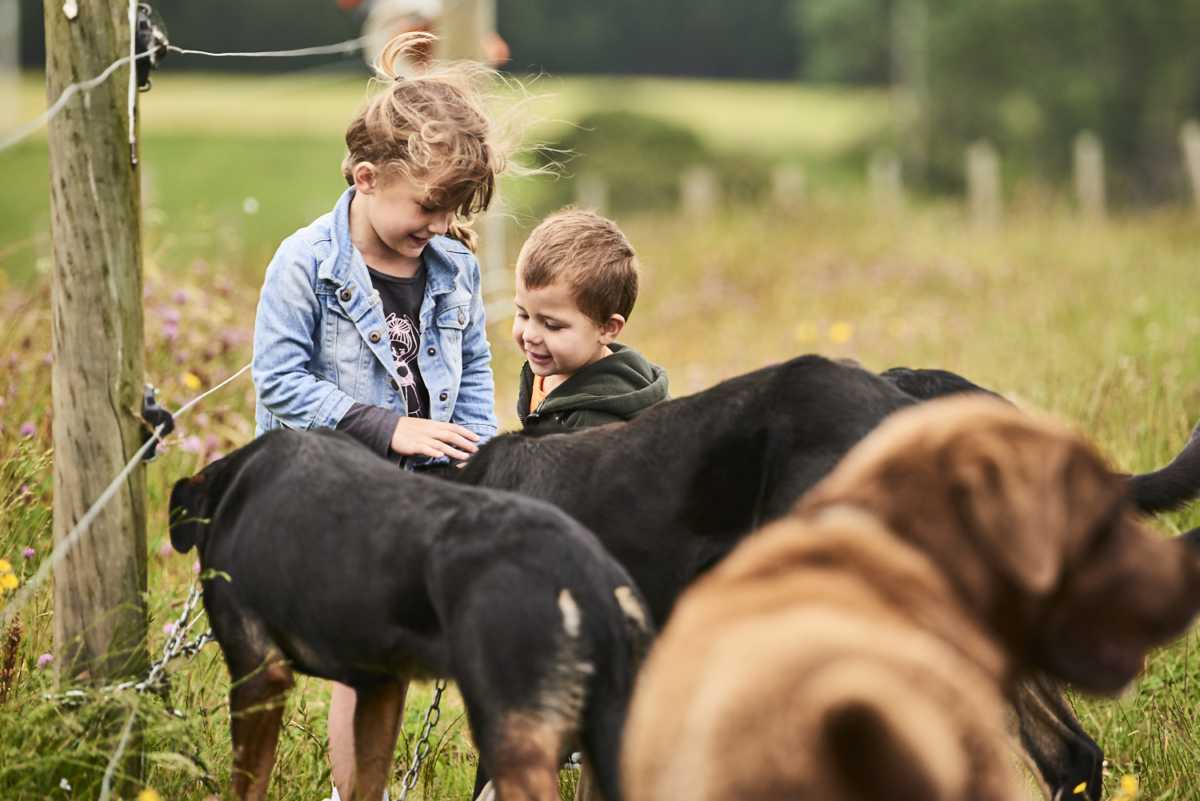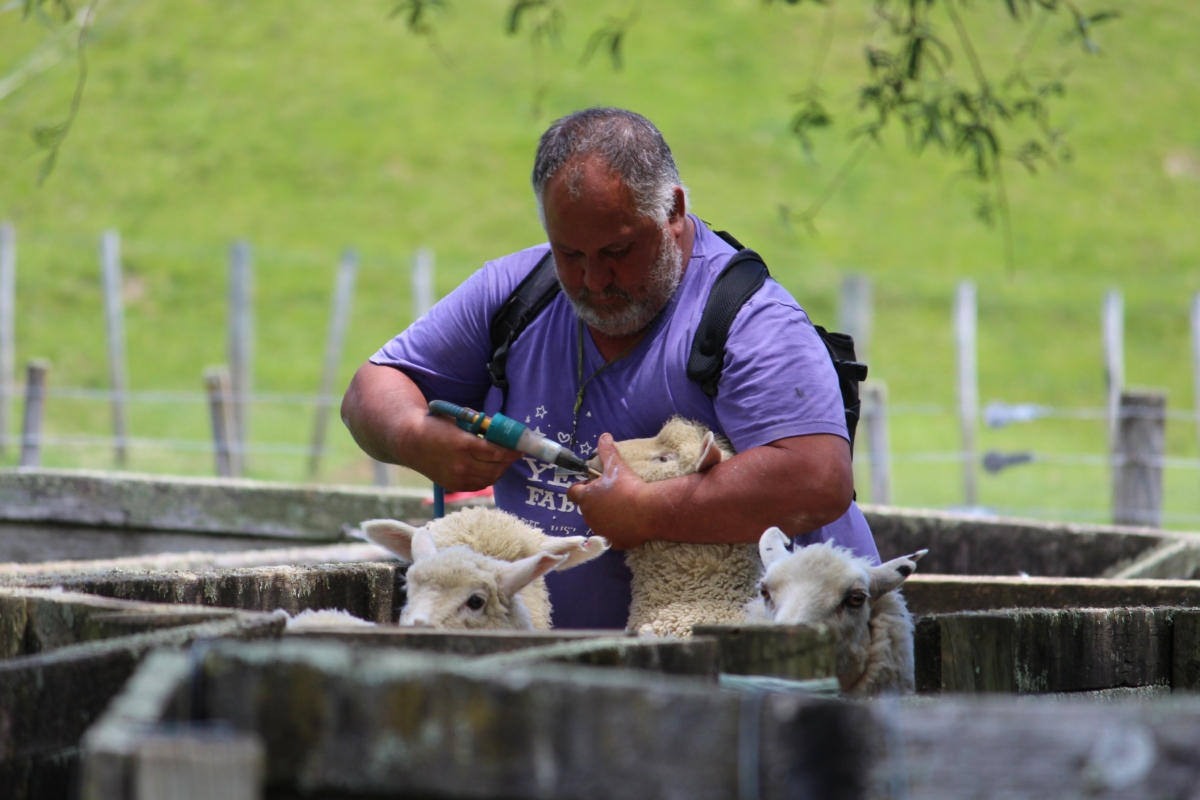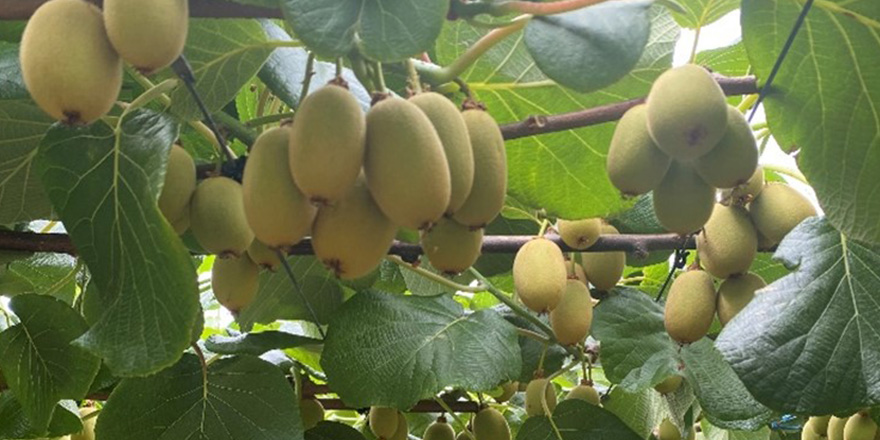
December 2022
Welcome to the last issue of the Rural Leader newsletter for 2022.
If it was a dance, 2022 would’ve been a bit like a ballet-quick-step for us. Something you’d look at and say, ‘Wow – that’s, interesting.’ Like most of the sector, we got it done. We achieved what we set out to do – and more. We’ll share some of our big moves from the year.
In December’s Ideas that Grow Podcast we hear from Rebecca Hyde. Rebecca is a 2017 Nuffield Scholar, a 2021 Kellogg Scholar, and a Farm Environment Consultant. Rebecca discusses what collaboration looks like overseas, both inside and outside of agricultural land use, and on working with catchment groups here in Aotearoa, New Zealand. It’s an informative look at the collaborative frameworks underpinning the way we get things done.
Kellogg Lincoln, Programme Two (K48), graduated nearly two weeks ago. This cohort completed their programme only a month after Kellogg Whanganui. For Kellogg it has been a busy year. In total, there have been five cohorts graduating in 2022, four phase twos as well as three phase ones.
We’ll share the Kellogg Lincoln, Programme Two reports more widely in the new year. The reports cover topics ranging from: women in leadership, regenerative viticulture, environmental compliance, through to career development, the fresh produce supply chain, herd monitoring technology, and more. .
As mentioned in last month’s Rural Leader, AGMARDT Trustees have recently decided to give further support specifically to Kellogg. This will be in the form of three new scholarships that seek to improve access to leadership development.
In the first quarter of next year, the Rural Leaders Agribusiness Summit is set for 27 March, Christchurch Town Hall. This one-day industry forum boasts a line up of national and international speakers, panels, debate, and discussion. Make sure you get your early bird tickets before 31 January.
In Alumni in the Spotlight this month, we put the spotlight on the spotlight with a summary of the years’ alumni stories.
Stay well, and we hope you have a relaxing Christmas break with friends and whanau.
The team at Rural Leaders.
Ideas that grow podcast.
Rebecca Hyde: Collaboration, cooperation and finding common ground.
Rebecca Hyde is better placed than most to see the differences between collaboration, cooperation and the value of finding common ground when it comes to farming and the environment. It’s her job.
She discusses her work and provides a useful ‘101’ on what collaboration looks like overseas and closer to home – both inside and outside of agriculture.
It’s an informative look at how we should be getting things done in food and fibre.
Listen to the podcast below or follow this link to read the transcript.
A year of ideas that grow.
From alternative proteins to high-country stations, and from horticulture to changing how we work, these were the podcasts of 2022.
Nuffield and Kellogg Scholars deliver informative and topical Ideas That Grow podcasts – take a listen over your Christmas break.
January
James Parsons
When value-add doesn’t add up.
2008 Nuffield Scholar
February
Desiree Reid
An entrepreneurial spirit.
2010 Nuffield Scholar
May
Kate Scott
Front footing the fast-moving regulatory environment.
2018 Nuffield Scholar
June
Hamish Murray
Building stronger on-farm teams by getting out of the way.
2019 Nuffield Scholar
September
Ben Todhunter
Farming, conservation and Nuffield.
2006 Nuffield Scholar
October
Katie Vickers
Banking on a sustainable future.
2019 Kellogg Scholar
December
Rebecca Hyde
Collaboration, cooperation and finding common ground.
2017 Nuffield Scholar and 2021 Kellogg Scholar
Rural Leaders – the big moves in 2022.
At the risk of this whole post sounding self-congratulatory, we thought we’d review a few of the year’s bigger moves for Rural Leaders. It’s been busy, we made it, and like you we’ll return wiser (and rested) in 2023 to do it again.

Inviting applications for Associate Trustee - New Zealand Rural Leadership Trust.

If you are ready to begin your governance journey in the food and fibre sector, this Associate Trustee role represents a unique opportunity to contribute to the sector in a meaningful way – and to an operation growing world-class leaders for our country.
As Associate Trustee (non-voting Rural Leaders board member) your voice will be welcomed at the board table on matters regarding strategy, policies, performance, financials, risk and standards.
Find out more here. For a private discussion about the role or to submit written application and CV, please email Chris Parsons, CEO, NZRLT at chrisparsons@ruralleaders.co.nz.
Applications close midnight, January 9, 2023.
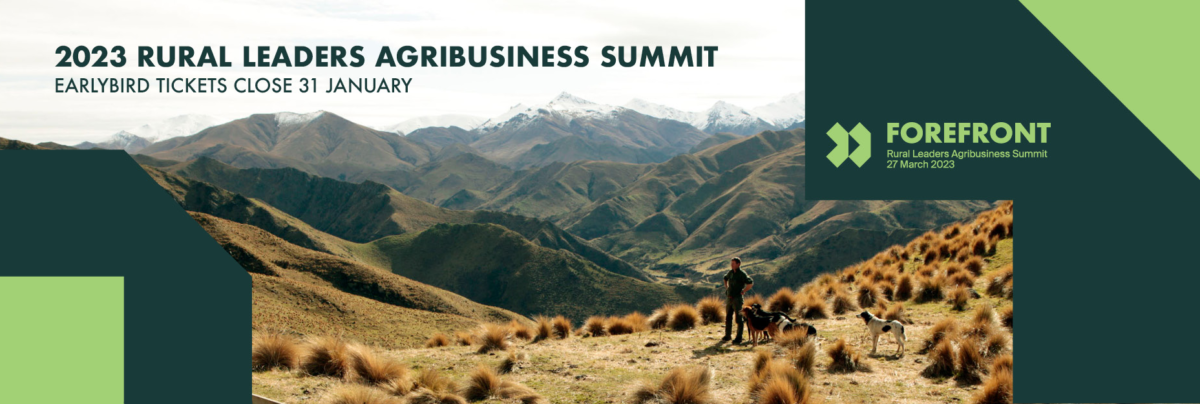
The Summit theme ‘Forefront’ focuses on those businesses making change now – those that provide solutions to the sector’s, and the world’s, biggest agribusiness challenges and opportunities.
Set for March 27, at the Christchurch Town Hall, this one-day, multi sector forum looks set to be one of the key industry events for 2023.
“… The day is designed for farmers, growers and associated industries with a focus on real and practical answers,” Says Murray King, Summit Day Chair.
To find out more about the Summit, visit the event page.
2021 Nuffield Scholar report videos now live.
John Foley: Science and innovation in New Zealand agriculture.
The world is changing, and to keep up, New Zealand needs to be world-class at research and value creation – Innovation is the common denominator.
We need to re-imagine our science and innovation models to give agriculture the best opportunity to contribute to a more prosperous New Zealand.
Lynsey Stratford: Super heroes, not super humans.
Despite the introduction of the Health and Safety at Work Act 2015 and a focus on improving health and safety, the rates of fatality and harm in NZ agriculture remain stubbornly high.
This has negative impacts on the sector’s productivity, profitability and sustainability. The consequences for farming families and communities are tragic.
Ben Anderson: The green and the black of it.
This paper sets out to determine whether it’s possible to better monetise sustainability in the New Zealand Deer Industry. In addition to this, it seeks to understand why NZ deer farmers achieve such poor returns in comparison to both the end value of their products, and the level of risk they accept in producing them.
Lastly, this reports looks at whether our conventional industry supply chains are going to be fit for purpose in a rapidly changing world.
David Eade: Resign or Redesign.
Commodity prices received by New Zealand farmers are close to all-time highs, yet we are protesting in the streets for the first time in decades.
Our resistance to environmental regulation has exposed a vulnerability – we, farmers, are struggling to hold our place in the power hierarchy.
Daniel Eb: The Home Paddock.
This report is a strategy for a values-led redesign of the domestic food system.
A fracturing social licence to farm. Recruitment. An authentic provenance story. These are our sector’s most entrenched challenges. At their roots, they are about culture, values and perception.
Kellogg Whanganui – three reports worth reading.
A big part of our impact model at Rural Leaders, in addition to the personal growth that each scholar achieves, is based on the individual research reports.
We invite you to take a look at a small selection of these reports below.
Dave Thomson: Farming Lessons from Te Ao Māori.
This report aims to provide understanding of te ao Māori (Māori world view) and mātauranga Māori (Māori knowledge), and to explore how these concepts can be utilised to benefit individual farms and industry.
Lauren Woolerton: Happy and Healthy at Work.
With the growth goals of horticulture and seasonal labour shortage, how do we build a successful and productive Recognised Seasonal Employer workforce?
Braydon Schroder: Farm System Influence on Dairy Workforce Retention.
What/why aspects of a New Zealand dairy farm system influence employee job satisfaction and retention? How may valid solutions should be implemented?
Upcoming Kellogg Programmes and closing out 2022.
Programme Two (K50), June start is open for registrations. This Programme will mark fifty Kellogg cohorts since 1979.
Here’s a glance at the Kellogg Programmes schedule for 2023.
Kellogg Programme One, Lincoln: 24 January – 7 July 2023
Phase One (Lincoln): Tuesday 24 January – Wednesday 1 February 2023.
Phase Two (Wellington): Monday 17 April – Friday 21 April 2023.
Phase Three (Lincoln): Monday 3 July – Friday 7 July 2023.
Kellogg Programme Two, Lincoln: 13 June – 30 November 2023
Applications for Programme Two, 2023 are open. You can register your interest or apply at https://ruralleaders.co.nz/application-kellogg/
Phase One (Lincoln): Tuesday 13 June – Wednesday 21 June 2023.
Phase Two (Wellington): Monday 11 September – Friday 15 September 2023.
Phase Three (Lincoln): Monday 27 November – Thursday 30 November 2023.
Applications for 2023 Kellogg Programme Two close on Sunday, 16 April 2023. Get them in before Christmas to confirm your place.
Nuffield Triennial International Conference.
The Nuffield Triennial site is now live. Visit us here https://www.nuffield2023.com/
Triennial dates: Friday, 24 March – Sunday, 2 April 2023
Agribusiness Summit date: Monday, 27 March 2023
For more information on the Agribusiness Summit click here and here.
Sponsorship. If you would like to know more about partnering with us, please contact John Wright at john@wrightfarms.co.nz
Alumni in the spotlight.
We’ve turned the spotlight on the spotlight with a summary of the year’s Alumni in the Spotlight articles and news. Click on any you missed through 2022.
January:
Observations from a high-country station. – Ben Todhunter – 2006 Nuffield Scholar
Meet Jessie Chan: the farmer breaking the glass ceiling. – Jessie Chan – 2012 Kellogg Scholar
Madison Pannett on GenZ in the primary sector. -Madison Pannet – 2021 Kellogg Scholar
March:
New appointments to Sustainable Food and Fibre Futures Advisory Panel. – Andy Elliott, 2018 Nuffield Scholar and Mat Hocken, 2017 Nuffield Scholar
Cam Lewis, 2009 Kellogg Scholar and mixed farm operator featured on Country Calendar. – Cam Lewis – 2009 Kellogg Scholar
April:
Kellogg Scholars on The Country with Jeremy McKay.
Anna Benny (2022 Kellogg Scolar) on the rise of animal-free dairy.
Caroline Batley (2022 Kellogg Scholar) talks about the decline of rural community services in New Zealand.
Hemprino: Entrepreneurial trio create merino/hemp fibre blend. – Siobhan O’Malley, Harriet Bell, Paul Ensor – 2018 Kellogg Scholars
May:
Farming with passion and precision. – Craige Mackenzie – 2008 Nuffield Scholar (on of the most read articles on Farmers Weekly website for 2022)
June:
The carbon credit currency. – Sam Mander – 2022 Kellogg Scholar
How Resilient Farmers Thrive In The Face Of Adversity. – Jack Cocks – 2021 Kellogg Scholar
Prospering through change. – Corrigan Sowman – 2019 Nuffield Scholar
July:
Prospering through change continues. – Kate Scott – 2018 Nuffield Scholar
August:
Country Calendar featuring Hamish Murray of Bluff Station. – Hamish Murray – 2019 Nuffield Scholar
September:
Power cost sparks solar option. – Cam Henderson – 2019 Nuffield Scholar
October:
Integrating systems. – Stephen Wilkins – 2013 Nuffield Scholar
Dairy farmer Tracy Brown (2020 Nufield Scholar) elected to DairyNZ’s board.
December
Scholar urges farming leaders to be proactive. – Daniel Eb – 2021 Nuffield Scholar
Corrigan Sowman (2019 Nuffield Scholar) elected Board Director at LIC AGM.
NZ Farm Life Media – It’s never too late to learn.
With a wide range of sector relevant learning options available from short courses to more involved programmes, we should probably all have some professional development in mind for 2023.
Take a read of the Dairy Exporter article featuring both Kellogg and Nuffield.
Inspiring Food and Fibre futures in schools.
The Rural Professionals Fund will invest up to $75,000 in projects that will rapidly test ideas and innovations within a short nine-month time frame. The application form is available at ourlandandwater.nz/RPF-apply. Applications close at 9am on Monday 9 March.
In the previous funding round, the fund received 32 applications, of which 12 projects were funded. Find out more by clicking on the image on the right.
Join New Zealand’s national Open Farm Day.
Hosting an Open Farms event is open to all food and fibre producers. Farmer hosts choose the size, format and focus of their event.
To support farmers to host an open day, Open Farms streamline the process with a range of hosting planning tools, full marketing support, a ‘box of kit’ and more.
Open Farms is sponsored by Beef + Lamb New Zealand, the Our Land and Water National Science Challenge and the Ministry for Primary Industries’ Sustainable Food & Fibre Futures fund. Post
Let’s help urban Kiwis reconnect with our land, food & farmers. Register to host or visit a farm at www.openfarms.co.nz
Research funding to support Māori innovation.
The NZAGRC is funded by the Government to invest in, and coordinate research aimed at helping reduce New Zealand’s agricultural greenhouse gas emissions. This work is undertaken collaboratively by research providers and targets cost-effective practices and technologies for reducing emissions in our farm systems and environments.
Toihau and the NZAGRC are seeking Expressions of Interest for projects in areas such as: agricultural greenhouse gas emissions from Māori land, initiatives that lead to greater understanding of and participation by Māori in agricultural emissions reduction activities, and more. Submit your Research ideas to toihau@nzagrc.org.nz by 12pm, 27 February 2023. Click here to find out more.
AWDT programmes for 2023.
Ready to learn, grow, connect or lead in 2023? Develop the mindset, skills, confidence and connections to build stronger businesses, careers and communities?
The Agri-Women’s Development Trust have a way to get you there with registrations for 2023 programmes now open.
The 2023 Programme Guide (linked here) gives an overview of each programme – the topics covered, who they’re designed for and where and when they’re running.
Registration for individuals, farming and growing partners can be made at www.awdt.org.nz - or get in touch with AWDT if you have a group or team to register.
Leadership opportunities
Senior/Principal Advisers (Māori Agribusiness).
Are you driven to support a te ao Māori approach to respond to climate change for the primary sector? Does the potential of mātauranga and Māori-led innovation to create intergenerational climate change solutions for whenua Māori motivate you?
CFO & GM Corporate Services.
A critical leadership and management role, responsible for the financial management of DairyNZ. A key player in our strategy and investment team including contribution to strategy and, as part of the GM team, leads and manages our Corporate Services function.
Send us your feedback.
We’d like to know what you think of the Rural Leader and of you have any ideas on how we could improve it.
Our programmes work in partnership with some of New Zealand’s leading agribusiness organisations – click here for more.



























